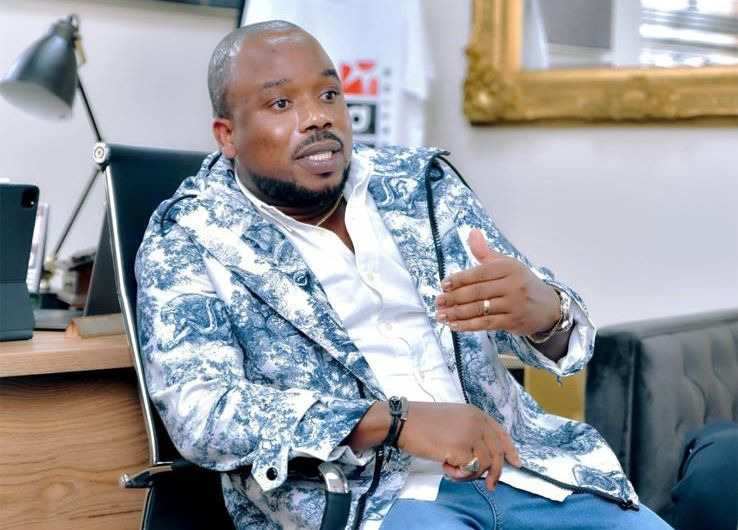Group Chairman of Allied Consortiums, based in South Africa, Mr. Benjamin Quashie has bemoaned the fact that Africa is saddled with leaders who are not interested in growing the continent, but rather “growing their pockets and that of their cronies”.
The businessman pointed out that although there is corruption in other parts of the world, which is a major canker crippling many economies, Ghana can learn a lot from South Africa on how best to tackle the situation in order not to stifle businesses.
Speaking in an interview with Happy FM’s Nyansa Boakwa recently in South Africa on a wide range of issues, he also observed that systems put in place for businesses to thrive in Ghana are not working coupled with politics of vindictiveness.
“Ghana’s problem is that we are paying lip service to fighting the canker called corruption. Our institutions don’t work. The institutions that are there to be investigating corruption, are rather investigating other things outside corruption,” he said, challenging the government to pluck the loopholes identified by the Auditor General in its yearly reports.
Issue like ghost names which keeps swelling the payroll is something that cannot happen in South Africa because it has a robust identification system, supported by systems that really work, Mr. Quashie remarked.
Birth certificate
He advocated strongly for the inclusion of birth certificate as one of the primary documents that identify one as a citizen of Ghana.
“We should ensure that the identification system is apolitical; no political interference when it comes to getting your numbers as a country. The issue of who is a Ghanaian by the use of the birth certificate must be revisited.”
Although he lauded the Ghana Card, he was certain that after its expiration date, which is 10 years, the ID number would change among other isolated challenges.
“It is a laudable idea to have a Ghana Card to go with, but when you allow selfish and parochial interests to overshadow the good that you have, in terms of the Ghana Card, it becomes a failure,” he noted, “It is only in Ghana that we hear that your birth certificate is not something that proves that you are a citizen. My birth certificate is the first thing I received that made me a citizen of Ghana.”
Doing business in South Africa
The business mogul described South Africa as a business-friendly environment where any business can thrive successfully.
“For me, I would say South Africa is the free world in Africa, just like the US is the free world for the whole world. Most of their rates that they give to businesses and most of the opportunities that their banking sector gives to individuals and businesses, it would let you know that Ghana is way behind.
“South Africa can be a yardstick that we can learn from as Ghanaians, if we want to grow businesses because you would enjoy doing business here. The government, the private sector, everybody team up to give you a push.”
Mr. Quashie who is into oil and gas as well as real estate is convinced that, as a foreigner, the easiest country to register a business is South Africa.
“Most of our people who don’t even have residence permit, work permit or don’t have the legal right to be here, you walk to the CIPC, where they register companies and they only need the data page of your passport, tell them your idea, then you register a business.
“Unlike in Ghana where a lot of businesses have had serious challenges that have made them to fold up. Everything we do as businessmen is controlled by the dollar-cedi rate, and you can’t do a business in Ghana and break even. Cost of goods and services triples overnight so it has become very difficult to succeed.”
Mr. Quashie added that in South Africa, government comes in to support you if you are doing something that is impacting lives in society.
“Tell me that it’s something that happens in Ghana. It only happens to the connections you have. It’s not like you just walk in and say Registrar-General, I want to register a company. It’s difficult.
“One thing that drew me to South Africa, was the issue about they having a very regulated banking sector that is domestically owned by South Africans,” he observed.
On the issue of the notorious xenophobic attacks on foreigners, Mr. Quashie disclosed that Government with time, is coming up with measures to fight such atrocities, which was becoming an annual ritual.
He admitted that there are certain challenges in South Africa that give cause to the citizens to complain, however, those problems cannot be in anyway compared with what pertains in Ghana.
“They have their peculiar problems as a country, but like I am saying their problems look like gold compared to our problems,” he assessed.
Also, businesses are easily able to recoup in South Africa than in Ghana; where social intervention systems work so perfectly like in Europe.
“There’s no housing deficit in South Africa because the Rent Control laws work. You pay one month, you move in and every month, you will be paying your rent. In Ghana, without two years rent advance payment, you can’t rent a place. We need to learn from them,” he advised.
On the relationship between business and politics, Mr. Quashie maintained that, “Every businessman cannot stay away from politics because it is the leaders in the political field that create environments that become conducive for a business. If you don’t support the politicians’ ideas and objectives, and they come up with VAT increment or with certain laws that affect your businesses, your business doesn’t grow. So politics and business, they move in tandem”.
Allied Consortiums deals in real estate, oil and gas, financial services, telecommunications among others in South Africa with branches in Ghana.
As part of its corporate social responsibility to the Ghanaian society, it has provided hospital equipment and potable water to some communities in the Eastern, Volta and Northern regions of Ghana. In an effort to bring hope and put smiles back on the faces of people, Allied Consortiums recently presented 10 mechanised boreholes to Ayensuano community.













